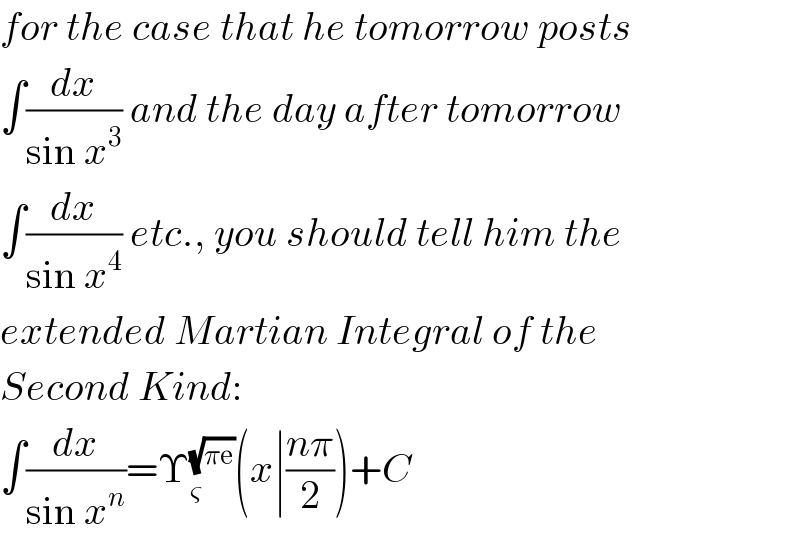
Question and Answers Forum
Question Number 77593 by BK last updated on 08/Jan/20

Commented by $@ty@m123 last updated on 08/Jan/20

Commented by BK last updated on 08/Jan/20

Commented by mr W last updated on 08/Jan/20

Commented by MJS last updated on 08/Jan/20

Commented by BK last updated on 08/Jan/20

Commented by $@ty@m123 last updated on 08/Jan/20

Commented by MJS last updated on 08/Jan/20

Commented by mr W last updated on 08/Jan/20

Commented by MJS last updated on 08/Jan/20
��
Commented by mr W last updated on 08/Jan/20

